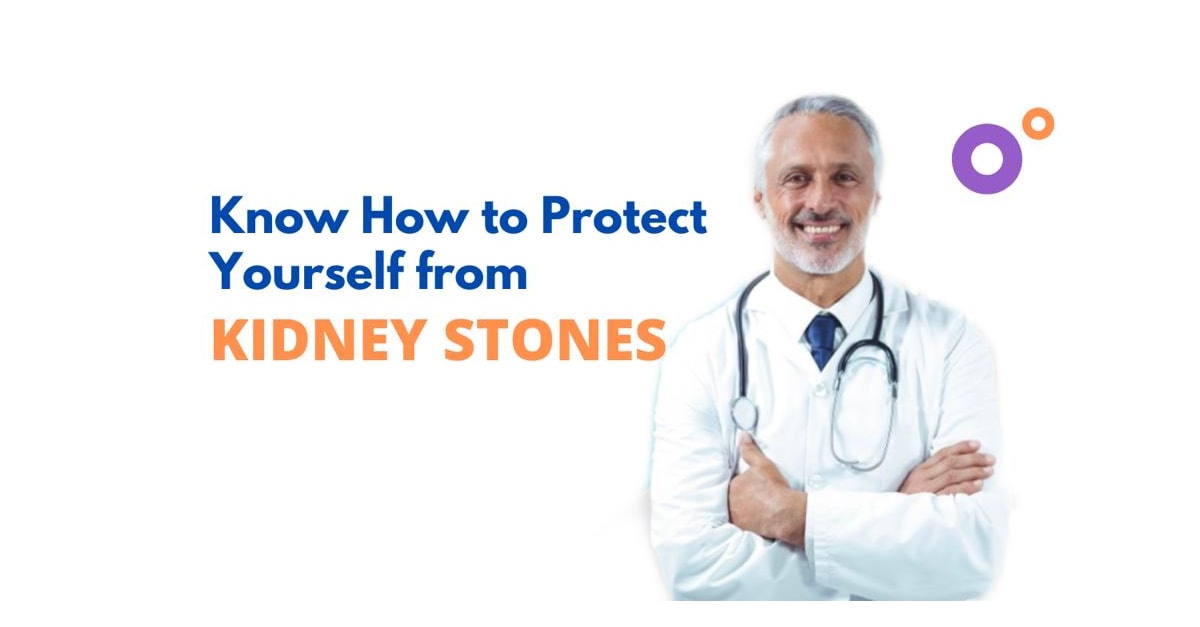Protect Yourself from Kidney Stones

Introduction
‘Nephrolithiasis’ is the medical term for ‘kidney stones’ a term which covers different types of small, solid crystals which form within the kidney or urinary tract. Kidney stones are quite common. They form due to different causes and different food; some form as you have too much of certain minerals in your system or due to genetic reasons or related to kidney infections.
With the right foods, plenty of water and proper medication, you can lower your chances of kidney stones though there’s no guarantee or prevention methods which work.If you have a condition that increases your risk of kidney stones, such as inflammatory bowel disease, persistent urinary tract infection or obesity, talk to your doctor at FirstCure Health about ways to manage it or to decrease your kidney stone risk.
Stay hydrated: - Dehydration is a major risk factor for kidney stone formation; therefore, try to drink around eight glasses of fluids daily or enough to pass two liters of urine. If you don’t drink enough your urine output will be low. Low urine output means your urine is more concentrated and less likely to dissolve urine salts that cause stones. Also look at the color of your urine — it should be clear or pale yellow. If it’s dark, you need to drink more.
Eat more calcium-rich foods: - Low-calcium diets may increase your kidney stone risk and your risk of osteoporosis. Low-fat milk, low-fat cheese, and low-fat yogurt are all good calcium-rich food options. Calcium supplements, however, increase your risk of stones though taking calcium supplements with a meal may help reduce that risk.
Eat less sodium: - Limit your intake of sodium or high-salt diet to reduce your risk of kidney stones. Too much salt in the urine prevents calcium from being reabsorbed from the urine to the blood. This causes high urine calcium, which may lead to kidney stones. Sodium is a part of many canned, packaged and fast foods such as chips and crackers, canned soups, canned vegetables, condiments etc.
Eat fewer oxalate-rich foods: - Limit your intake of oxalates, the organic compounds found in a number of foods, including spinach, sweet potatoes, chocolate, coffee, beets, peanuts, soy products, wheat bran etc. As oxalates bind easily to certain minerals, including calcium, which helpsto form kidney stones.
Eat less animal protein: - Foods high in animal protein are acidic and may increase urine acid. High urine acid may cause both uric acid and calcium form to kidney stones. Therefore limit or avoid intake of poultry, fish, eggsor steaks this increases chances of developing kidney stones.
Avoid vitamin C supplements: - Vitamin C (ascorbic acid) supplementation may cause kidney stones, especially in men.
Consult a doctor about your risk factors
If you’re prone to certain types of kidney stones, certain prescribed medications can help control the unbalance in your urine. If you are overweight, consult us as studies show that being overweight increases your risk of kidney stones.The same is true if you have diabetes. Hyperthyroidism can also raise calcium levels in the blood and trigger kidney stones. Gout, when uric acid builds up in the blood also increases risk of kidney stones as crystals form in joints or kidneys. If you’ve had certain types of gastric bypass surgery or other intestinal surgery, your risk may go up.Certain kidney diseases like polycystic kidney disease (clusters of cysts grow in kidneys), medullary sponge kidney (birth defect that causes cysts to form in the organ’s tubes) increase chance of kidney stones.
Do follow the above tips to maintain a healthy lifestyle and avoid kidney stones. However if you are suffering from kidney stones do consult Urology team at FirstCure Health for further guidance.